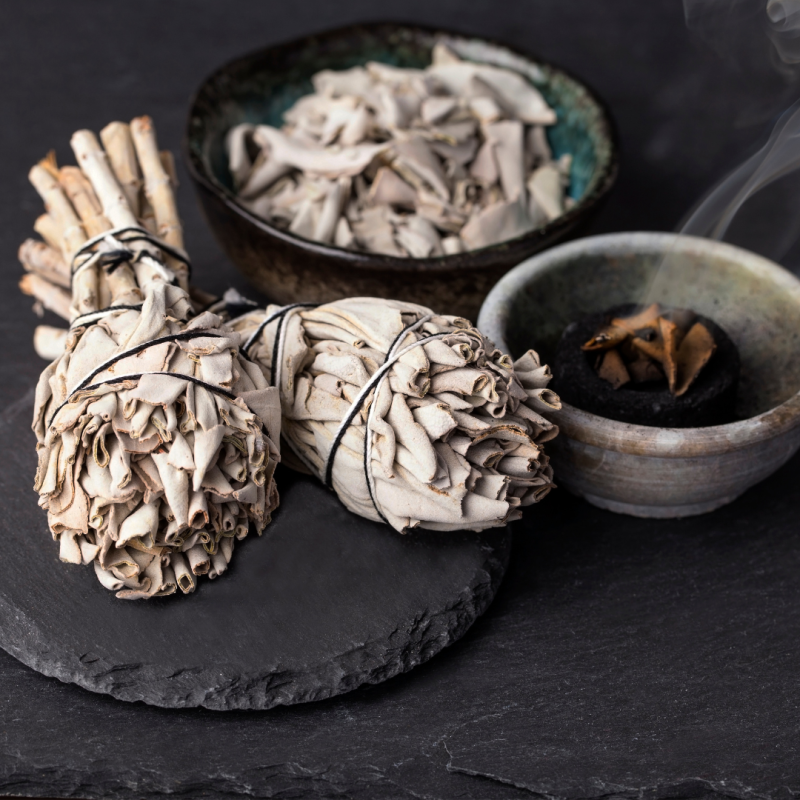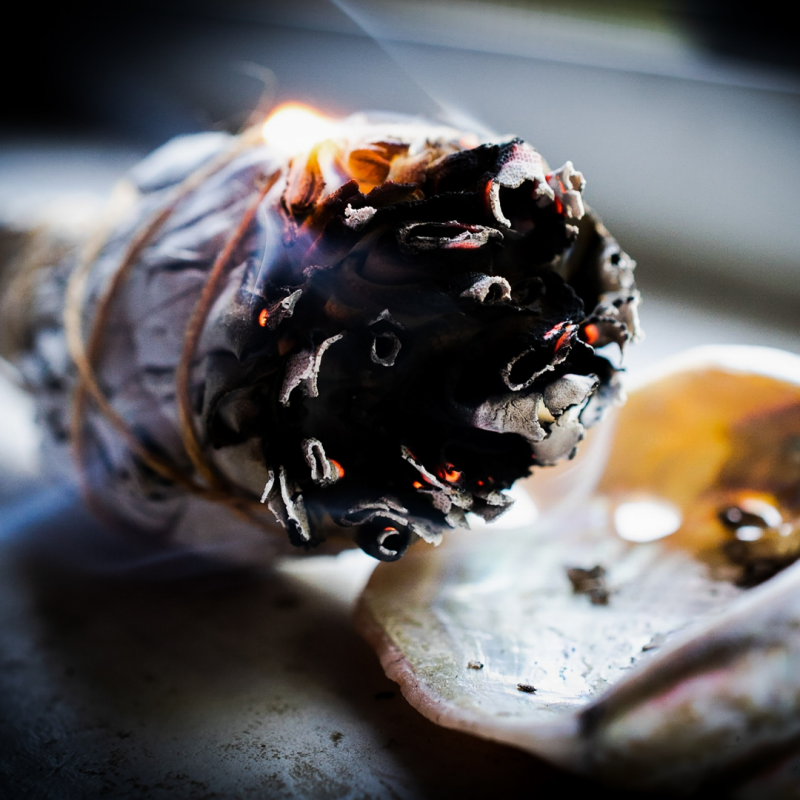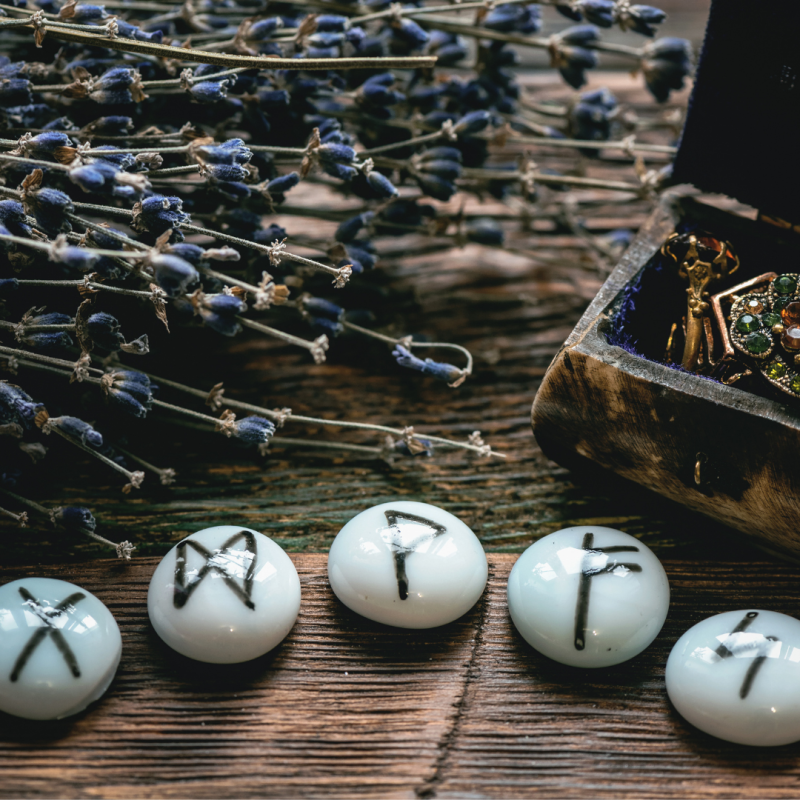
Rauhnächte or the 12 nights of Jul (also Raunächte or Rauchnächte in German) is a very old German/Austrian tradition in the darkest time of the year, which is probably caused by the inequality of the lunar year (12 lunar cycles with 29.5 days each = 354 days) and the solar year (365 days).
These nights are known as the "time between the years" as well and were always a time of reflection, oracle, purification and preparation for the upcoming new year.
In general the term 'Rau(h)nächte' comes from the word rough (like wild), from smoke or burning incense.
Burning incense and smudging house and stables at this period is a very old tradition that has also found its way into Christian customs over time and is still alive today especially in the Alpine region.
It is said that the bond of this worldly world to the otherworld is much stronger than usual and smudging the home is necessary to get rid of the evil spirits and energies.
The winter goddess Frau Holle and the Wild Hunt are raging over the whole world seeking out and sweeping up the dead, ushering out the dead old year itself. It is common no work is allowed during this time.
From Germanic sources we see stories of the Goddess Berchta / Percht
will punish those who had left work undone.
So bettter don´t do this:
- In these sacred 12 'nights' you should not wash or hang laundry, because otherwise someone will die
- You should not travel, do not bake, do not work hard, do not sweep, do not turn a wheel and do not spin - that's not what Frau Holle likes to see.
Make sure the work is done before Winter Solstice!
A lot of people sacrifice small gifts like bread, cakes, and seeds to Frau Holle or giving her special attention and perhaps she will be gracious in the coming year and will fulfill your wishes..
The original Germanic Goddess called Frau Holle in the fairy tales is the Norse goddess Holda or Hel.
Hel /Frau Holle and Odin/Wodan - both leading the 'Wild Hunt' where demons and witches
ride their brooms through the skies on these nights.
Therefore it is still traditional in some areas today to make or get new brooms during this time.

The beginning of those magical nights starts at the winter solstice (December 21st) - the longest night of the year
- until the 1st of January /new year.
The dates can also vary for example from 24th of December until the 6th of January.
Each of the 12 magic nights is said to be related to one of the 12 months of the upcoming year and it´s common to use every night for traditional oracles like rune drawing or to pick a tarot card. So every evening offers the opportunity to manifest and visualize a wish or a special goal for this area of life on the basis of the topics of the respective related month and to give the respective project a magical boost.
In the Alpine region, Frau Holle, Hulda, Holda or Hel also corresponds to the winter goddess Berchta (Perchta) - and still today Perchten parades are quite popular in Austria, Bavaria and Switzerland to celebrate the special occasion.

Add comment
Comments